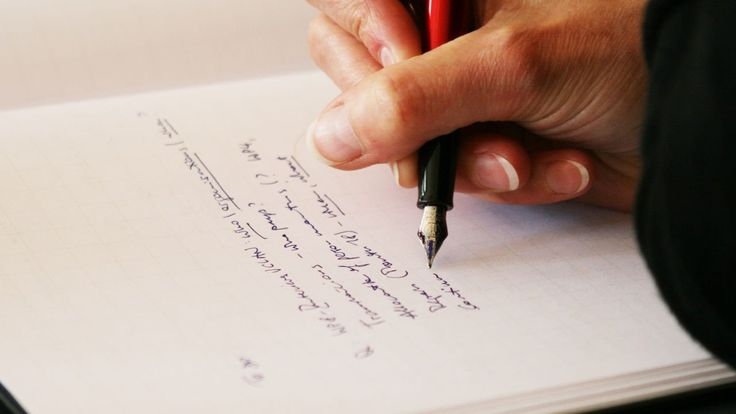3 Effective Note-Taking Techniques
Note-taking is one of the skills that people rarely learn. Most people assume that mastering notes is an innate skill or that someone else must have taught them how to do it; then complain that their colleagues do not know how to take notes effectively.
But it's time to find a solution to this. Whether you are a student or a mid-level employee, taking important and meaningful notes is a critical skill. Good notes help us remember facts and ideas that we may have forgotten, and the process of taking notes helps us remember them better in the first place.
One of the reasons people have difficulty taking effective notes is that they do not know the exact purpose of them. Many people, including students and employees, try to fully record a lecture, book, or meeting in their notes, which is a recipe for failure.
Trying to write down each fact and number in this way leaves no room for thinking about what to write and how the ideas relate to each other. If you have a personal assistant, it's okay to ask them to write everything in detail, but if you're alone, your observations have a different goal to achieve.
The goal of note-taking is simple: to help you work better and faster. This means that your notes don't have to include all the information but only the most crucial points.
But if you focus on writing down everything, your brain will not be able to recognize what is essential. That implies that to find little crucial information, you sift through all the unnecessary extra material when preparing for a test or writing a study paper.

What to write down?
While taking notes, you should focus on two questions:
- First: What new information is there for you? There is no point in writing down facts that you already know. If you know that the date of unity between Syria and Egypt is 1958, there is no need to write that down. So, you can delete any information you're sure you know from your notes.
- Second: What information interests you? What information may be helpful to you later, whether in a test, essay, or project?
Here are the types of information you need to pay attention to:
1. Dates of events
Writing down dates helps you create a chronology of events, order information by when they occur, and understand their context.
For example, knowing that Isaac Newton was born in 1643 helps you connect his work to that of other physicists who lived before and after him and to trends that prevailed in the seventeenth century.
2. Names of people
The ability to link names to core ideas helps you remember them better. When these names are mentioned again, you will recognize the links between different ideas, whether those proposed by the same people or those related to them in some way.
3. Theories and frameworks
You should write down any sentence related to a particular theory or framework because these are usually the main points.
4. Definitions
Like theories, definitions are also core points; unless you are sure you already know the definition of the term, you should write it down.
Always remember that many areas of knowledge use ordinary words in ways that are unfamiliar to us.
5. Dialogues and debates
You should record any list of positives and negatives related to a topic, any criticism of a main idea, and all aspects of any debate related to the ideas you read. They are the points from which progress in each discipline emerges, and they will help you understand how ideas have changed and why, in addition to understanding the thinking process and developing the idea of the topic.
6. Graphic images
When you use a graph to illustrate a point, write down a few words to record the experience.
It is an exaggeration to describe all the subtleties. However, it is enough to write down a brief description of the board or a short sentence about what was discussed in the class, session, or meeting to remind you and help you reconstruct the experience in your mind.
7. Other information
You may write down any information the professor writes on the board unless it is intuitive or something you already know. Books, movies, television series, and other media are usually helpful, although they may not be relevant to the topic being addressed.
You can put this kind of information on the sidelines to look for it later, as it is often helpful for research, so pay attention to others' comments as well, and try to write down at least the essence of it that helps you understand.
8. Your own questions
Make sure to write down all the questions that come to your mind about the subject you are studying. That will help you remember the questions you should ask your professor or search for information later. It will also encourage you to look at areas you cannot understand.

3 Effective Note-Taking Techniques
You don't have to be good at taking notes to be effective, but there are some techniques that people agree are helpful:
1. Create a chart
Whether you use Roman numerals or bullets, creating a chart is an effective way to derive hierarchical relationships between ideas and data. For example, in a history lecture, you can write the name of an essential leader, list the main events in which he participated, add a brief description under each one, and so on.
Creating a chart is a great way to take notes from books because the author usually organizes the topic fairly effectively, and you can go from the beginning of the chapter to the end and then smoothly paraphrase it in your notes.
As for lectures, the chart will not benefit you much because the relationship between ideas is not always hierarchical, and the lecturer may randomly move from one idea to another. An idea discussed at the end of the lecture may be better related to the information that was mentioned at the beginning, which forces you to constantly move between each point to find where the information fits better (if there is still room to write it), or you risk losing the relationship between what the lecturer just said and what he mentioned before.
2. Create a mind map
A mind map may be a more convenient way to track relationships between ideas during lectures, and here's how to create it:
- Start by writing the main topic of the lecture in the middle of the page.
- Draw branches from the center so each branch expresses one sub-idea mentioned in the lecture.
- Write down the points related to the sub-ideas in small twigs that emerge from the main idea.
The helpful thing here is that if you have to include a point under the first subtitle but have reached the fourth subtitle, you can easily add it to the first branch. In the same way, if a point is related to two different ideas, you can link it to two different branches.
If you want to arrange the map later, you can redraw or write it using a program such as Free Mind, which is a free mind mapping program (some wiki platforms have additional components related to Free Mind maps, in case you use a wiki to track your notes).
3. Take notes using the Cornell System
The Cornell system is a simple but effective system to enhance your ability to remember and derive optimal benefit from your observations. You can create it by following these steps:
- Draw a horizontal line at the bottom of the sheet the size of a quarter of a page.
- Draw another vertical line from this line by 5 cm to mark the right part of the page.
- Now that you've divided your page into three sections, devote the bulk of the page to taking notes naturally by creating a chart, mind map, or other similar device.
- After the lecture, write a series of questions about the topic you took notes on in the right column. This will help you absorb the information discussed in the lecture or while reading a book. In addition, it provides a helpful tool for reviewing and studying when the tests are approaching. Cover the main section with your hand and try to answer the questions in the right section.
- Write down a short two- or three-line summary of your thoughts. This will also help you understand the information by forcing you to formulate it differently. It is also a helpful reference when you try to find information in your notes later.
Conclusion
We've covered only a few of the diverse approaches and strategies people have devised for making good notes; some use markers or crayons, a baroque system or sticky notes.
We've to address the subject broadly and straightforwardly, but in the end, the method you employ should match your perspective. It's a problem that most people don't consider how they think, which leaves them disoriented and lost, as evidenced by their observations.